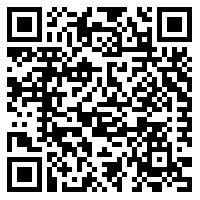Upper Grades English
The King who Rained by Fred Gwynne read-aloud
This is a book of idioms that have words that are homophones. In English, a king reigns, like Queen Elizabeth reigns over the UK, but the word sounds like the weather term "rains." Some of these words are
Here are the idioms, with the homophones in italics.
There was a king who rained for forty years. (reigned)
There are forks in the road.
He has a mole on his nose.
Lambs gamble on the lawn. (gambol - to play or frolic)
She has a frog in her throat.
She is a little horse. (hoarse)
I am a little deer. (dear)
I can hold up her train.
Next time he paints the house, he is going to give it two coats.
There is a head on his beer.
All we get in the mail are big bills.
She is playing bridge.
Our family has a coat of arms.
Live in the present.
Children have bear feet. (bare)
Foot prince / blue prince (foot prints / blue prints)
Some boars are coming for dinner. (bore = someone who is boring)
Fairy tails (tales)
If you are interested, you can learn more of these words (lists by grade level groups). Open the words lists and click on the words for a definition and to hear it used in a sentence.
We're Going On a Bear Hunt Read Aloud by Michael Rosen
Listen to the author act out (and of course, you can join him!) the story or simply listen to the story ! This is also a popular song with students. You can sing it too! This is the more traditional version of the song. Students should be able to follow fairly easily as there is a Finnish version of this song that they probably already know.
If You Were a Verb by Michael Dahl read-aloud
This book focuses on grammar and explains what a verb is and how it works in a sentence.
The Snowy Day by Jack Ezra Keats
This book, written in 1962, is a favorite story for kids all over the US. It won the Caldecott Award, which means it was the chosen as the best picture book of the year. In 1962, it would have been OK to have a snowball fight. It would have been soft snow, but today it is not allowed to throw snowballs at other students (so don't do it!).
This book is written in the past tense and has loads of words related to winter.
winter - talvi
snowsuit - toppapuku
pile - kasata
drag - vetää
track - jälki
smack - hakata
snowball fight - lumisota
snowman - lumiukko
(snow) angels - lumienkeli
melt - sulattaa
Choose 10 irregular verbs from the story and write their basic forms. (woke up, had fallen, could, put, ran, sank, was, fell, thought, knew, made, slid, went, told, took, got, felt, slept, gone)
Sick by Shel Silverstein Read Aloud
What body parts are mentioned in the poem?
Her temperature is 1-0-8, means that it is 108 F = 42.2 C. That's pretty hot!
Is Peggy really sick? Why do you think so?
The Giving Tree by Shel Silverstein Read Aloud
The Book with no Pictures by BJ Novak
Blueberries for Sal by Robert McCloskey Read Aloud
A classic story about Sal and her mother's day, spent picking blueberries.
The Popcorn Book by Tomie DePaola read aloud
Listen to the story. You can stop and write notes while you are listening to the story. What did you learn about popcorn from this book? Name at least 3 things!
The Art Lesson by Tomie DePaola read aloud
This book is written in past tense. Listen to the story and change the verbs into the present tense.
Zin! Zin! A Violin by Lloyd Moss Read Aloud
Review the names of different instruments from an orchestra and what we call groups of performers:
Trombone - pasuuna
trumpet - trumpetti
french horn - käyrätorvi
violin - viulu
flute - huilu
clarinet - klarinetti
oboe - oboe
bassoon - fagotti
harp - harppu
solo - soolo
duo - duo
trio - trio
quartet - qvartetti
quintet - kvintetti
sextet - sekstetti
septet - septetti
octet - oktetti
nonet - nonet
The Knight and the Dragon Read Aloud by Tomie DePaolo
This simple story uses the past tense. You can use it to review irregular past tense forms.
